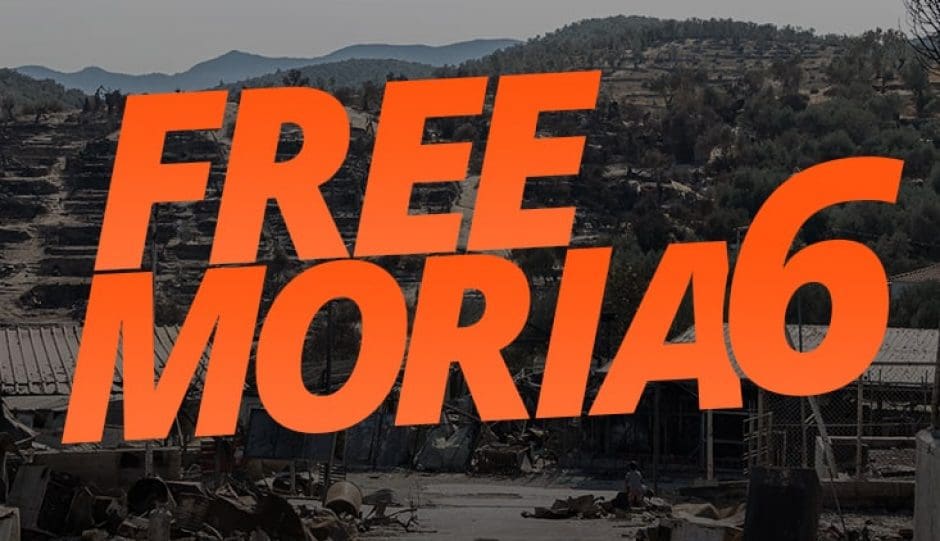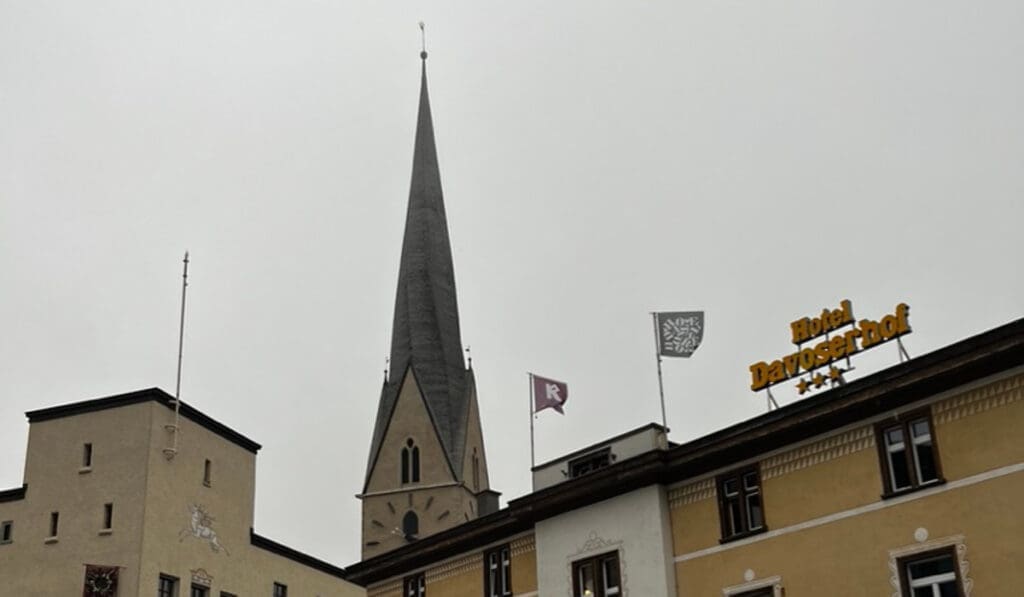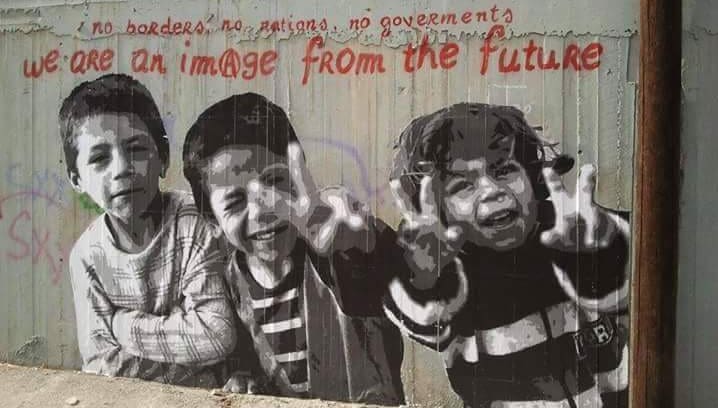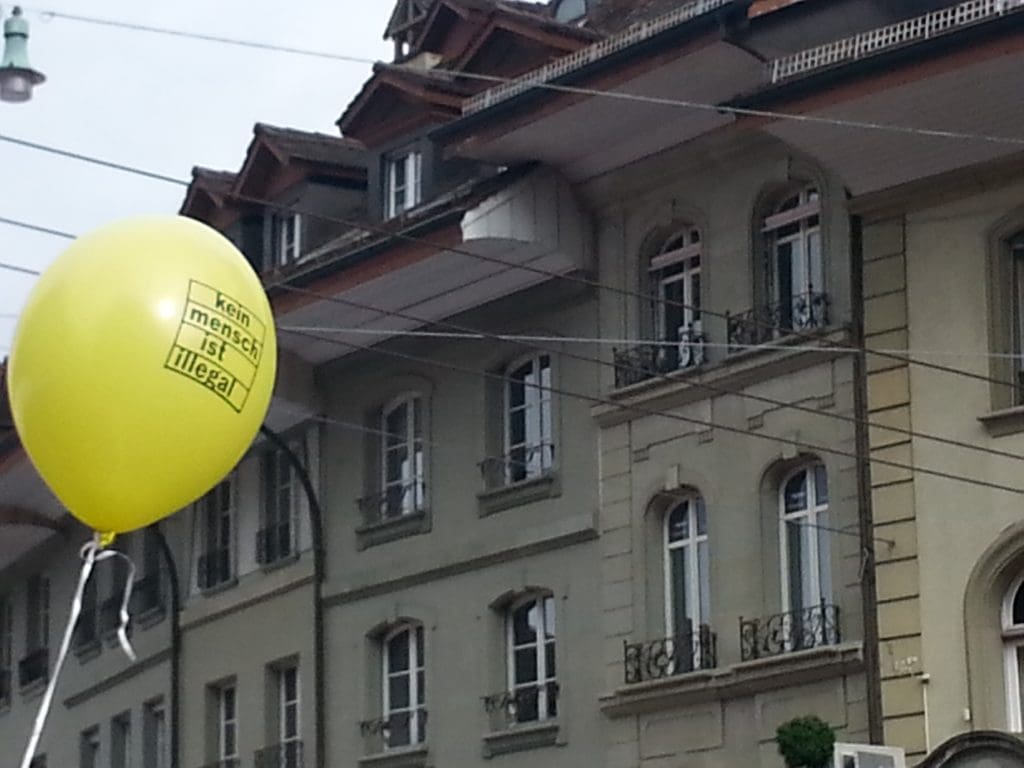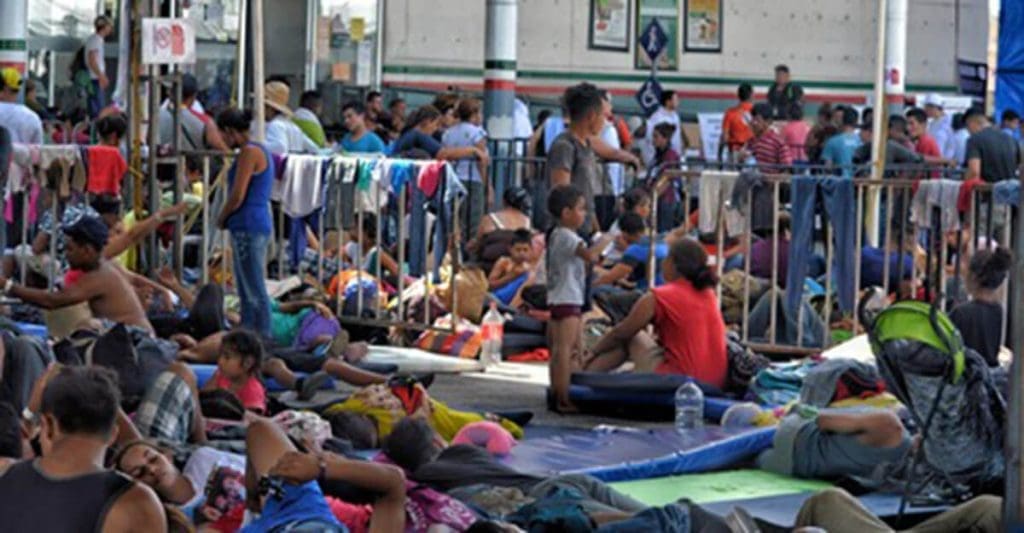After the fire in Moria in 2020: Six young migrants are made scapegoats of a failed EU migration policy – Call for fair and transparent trial for the Moria 6 on 6 March 2023 in Lesvos!
Statement from the Solidarity Campaign #FreeTheMoria6
27 February 2023 (original post – dort auch auf Deutsch)
After two of the six accused migrant teenagers have already been convicted legally binding in June 2022, now on 6 March 2023 the appeal hearing of the last four teenagers will take place on the Greek island of Lesvos. They are accused of having burnt down Moria camp in September 2020. Despite a lack of evidence, they had already been found guilty of arson endangering human life and sentenced to ten years in prison in the first instance trial on 11 June 2021.
Since the moment of their arrest and before any process of law, they have been presented to the public as the culprits. On 16 September 2020, just one week after the fires, the Greek Minister of Migration and Asylum Notis Mitarakis had already stated in an interview with CNN that “the camp was set on fire by six Afghan refugees who were arrested“, thereby violating the teenagers’ right to a fair trial under the presumption of innocence.
Our fear that their right to a fair, just trial will not be guaranteed and that they will instead be made scapegoats for the inhumane EU migration policy has so far proven true.
After the verdict on 11 June 2021, international trial observers criticized the lack of evidence and spoke of an unfair trial from which the public was excluded. Over seventy European organizations and hundreds of individuals had made the call for a fair and transparent trial. Despite a lack of clear evidence of the four defendants’ involvement in the multiple fires, they were found guilty after a two-day trial.
The court relied solely on the written testimony of one witness, who can allegedly no longer be found. He claims to have seen the defendants setting fire to the Moria camp on the first night of the fire. However, his testimony is full of contradictions. For example, the lawyers stated that he had only given common first names of people in the camp, on the basis of which the police arrested six people. In addition, the available documents proving that three of the accused were minors were not accepted.
The concern of a prejudgement had already come true when the first two of the six teenagers, those officially accepted as minors, were sentenced to five years imprisonment by the Juvenile Court on Lesvos in March 2021. Even then, observers had spoken of an unfair trial. On 7 June 2022, in what was once again a very hostile and far from impartial trial, the first instance verdict was upheld despite the fact that there is still no credible evidence. Only the sentence was reduced from five to four years because of “good behaviour in prison”. The Legal Center Lesbos filed an application for annulment of the unfair sentence, which will be heard by the Supreme Court on 10 March 2023.
At least one of the accused is in the meantime out of the prison, as his application for release on parole was granted. The other five teenager have now been in prison for almost two and a half years.
Background
On 8 September 2020, the infamous refugee camp Moria on the Greek island of Lesvos burned down, fanned by a strong wind. The widespread and long-lasting fires, well-documented and almost live-broadcasted via social media, brought the ongoing policy of deterrence through inhumane conditions in Europe’s “hotspot” camps in the Aegean region back into the international media spotlight.
Rather than seeing the fire as an inevitable disaster in the camp’s deadly infrastructure, the Greek state arrested six young Afghan migrants and presented them as the culprits and sole cause for the fire, attempting to stifle further public debate on the living conditions inside the camp and any political responsibility. The fires took place at a time when the number of people living in the camp had reached 12,000, movement restrictions had been in place for almost six months and a growing fear of Covid-19 was spreading inside the camp. One week prior to the fire, the first person had tested positive. Instead of moving infected people out of the camp and improving the living conditions for the people trapped inside, the government planned to completely seal off the entire camp with a double high-security Nato-wired fence and cracked down violently on any protest.
The sentencing of the six teenagers is another shocking example of how people on the move are criminalized, shifting public attention away from the EU’s and the Greek state’s crimes of building and maintaining inhumane camps like Moria.
The case of the Moria 6 is not the first time that migrants have been arbitrarily arrested and charged in Greece. This practice has long been part of the inhumane EU border regime. However, in the current political environment, the criminalization of migration has reached a new level, as have the illegal pushbacks of migrants by the authorities.
We call for fair and transparent trial on 6th of March 2023!
We stand in solidarity with the Moria 6 and against the deadly European border regime!
We call on the EU and the Greek state to take responsibility for the inhuman camps they purposefully created and for the human suffering that is resulting!
– Stop the containment of people at the margins of the EU!
– End the EU-Turkey Deal!
– No more Morias!
– Free the Moria 6!
++ Share this information, organize solidarity actions under the hashtag #FreeTheMoria6
++ For more information about the legal context see Legal Centre Lesvos
Further information and contacts:
Email: freethemoria6@riseup.net
Twitter: #FreeTheMoria6
Blog: https://freethemoria6.noblogs.org/

